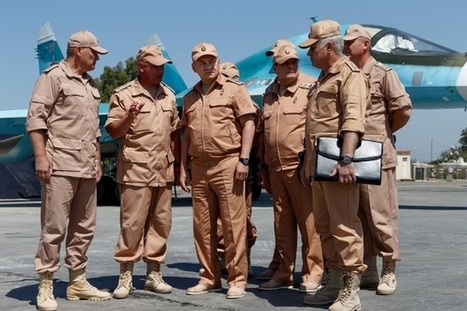Does #HenryKissinger Have a Conscience? - The New Yorker #NewDeclassifiedDocuments #Argentina
Jon Lee Anderson on Henry Kissinger’s legacy, and the newly released documents concerning his role in Argentina’s Dirty War of 1976.
More documents have been released that reveal his role in Argentina’s Dirty War. History will not absolve him.
(...)
Last week, the first tranche of those declassified documents was released. The documents revealed that White House and U.S. State Department officials were intimately aware of the Argentine military’s bloody nature, and that some were horrified by what they knew. Others, most notably Henry Kissinger, were not. In a 1978 cable, the U.S. Ambassador, Raúl Castro, wrote about a visit by Kissinger to Buenos Aires, where he was a guest of the dictator, Jorge Rafael Videla, while the country hosted the World Cup. “My only concern is that Kissinger’s repeated high praise for Argentina’s action in wiping out terrorism may have gone to some considerable extent to his hosts’ heads,” Castro wrote. The Ambassador went on to write, fretfully, “There is some danger that Argentines may use Kissinger’s laudatory statements as justification for hardening their human rights stance.”
The latest revelations compound a portrait of Kissinger as the ruthless cheerleader, if not the active co-conspirator, of Latin American military regimes engaged in war crimes. In evidence that emerged from previous declassifications of documents during the Clinton Administration, Kissinger was shown not only to have been aware of what the military was doing but to have actively encouraged it. Two days after the Argentine coup, Kissinger was briefed by his Assistant Secretary of State for Inter-American Affairs, William Rogers, who warned him, “I think also we’ve got to expect a fair amount of repression, probably a good deal of blood, in Argentina before too long. I think they’re going to have to come down very hard not only on the terrorists but on the dissidents of trade unions and their parties.” Kissinger replied, “Whatever chance they have, they will need a little encouragement . . . because I do want to encourage them. I don’t want to give the sense that they’re harassed by the United States.”
Under Kissinger’s direction, they certainly were not harassed. Right after the coup, Kissinger sent his encouragement to the generals and reinforced that message by expediting a package of U.S. security assistance. In a meeting with the Argentine foreign minister two months later, Kissinger advised him winkingly, according to a memo written about the conversation, “We are aware you are in a difficult period. It is a curious time, when political, criminal, and terrorist activities tend to merge without any clear separation. We understand you must establish authority. . . . If there are things that have to be done, you should do them quickly.”(..)



 Your new post is loading...
Your new post is loading...








